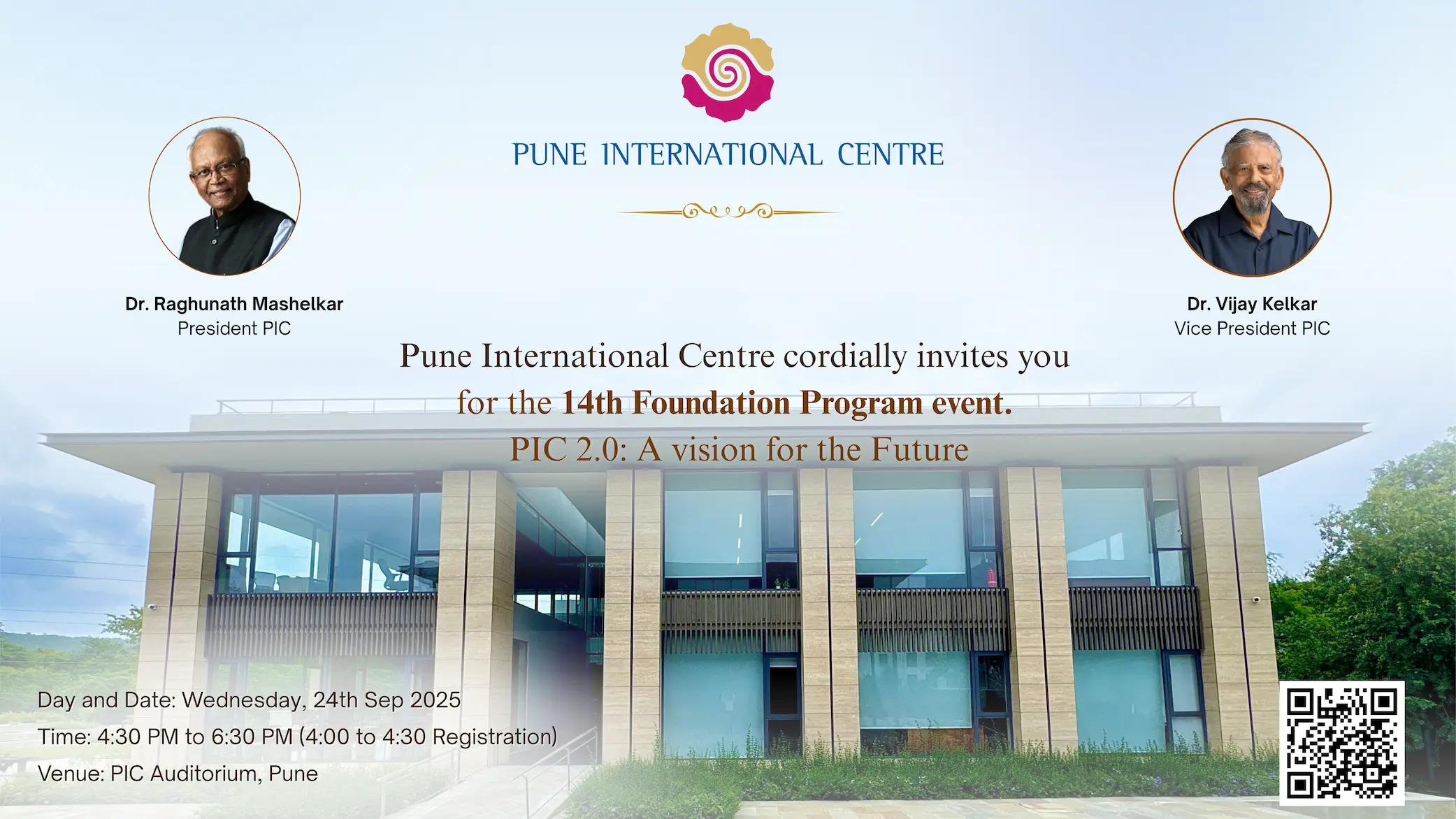The month of October kicked off with a webinar on “Pune’s War against Covid-19: Civil Society Perspectives”. This webinar saw the participation of eminent panellists and civil society members, namely, Mr. Sudhir Mehta (Coordinator, Pune Platform for Covid-19 Response) and the newly-elected president of Mahratta Chamber of Commerce, Industry and Agriculture (MCCIA); Mr. Mahesh Zagade (former Principal Secretary, Government of Maharashtra), Ms. Anuradha Mascarenhas (Senior Editor, Indian Express), and Air Marshal Bhushan Gokhale (Retd), Trustee, Pune International Centre.
The speakers came together to discuss the initiatives and measures undertaken to tackle the situation with regard to Covid-19 in Pune. The webinar was chaired by Mr. Prabhakar Karandikar (former Divisional Commissioner of Pune, and Trustee, Pune International Centre).
Among the panellists, Mr. Sudhir Mehta provided an overview of the ongoing situation in terms of case load, recovery, and fatality rates with regard to Covid-19 in Pune. While he was optimistic on the count of all figures steadily declining over time since the onset of the pandemic, he did emphasise that a lot more work was required, especially on the part of civil society – with the need for all citizens showing responsibility and following guidelines.
Air Marshal Gokhale spoke of the many technological innovations that have been spurred by the pandemic, which need to be more widely adapted as we go ahead while dealing with Covid-19. He highlighted that there have also been initiatives of various civil society organisations to contribute to other aspects of life impacted by the pandemic, especially education – where certain organisations are reaching out to provide underprivileged children in schools with laptops or devices, to be able to access online education.
Mr. Zagade lauded the civil society initiatives that Mr. Mehta and Air Marshal Gokhale highlighted, and said that it was initially expected that Pune would be able to better handle Covid-19 given its experience with dealing with Swine Flu hardly 9 years ago. He mentioned that preparation and social engagement between administration and civil society was almost nil. As a result, there was a significant communication disconnect between governing authorities and citizens, and this was a potential missing element that led to the ballooning of cases – leading to Covid-19 becoming an example of a disaster in management and prevention.
Ms. Mascarenhas noted that it was private hospitals more than government establishments that truly contributed to the war effort on Covid-19, which was corroborated from their on-ground reporting. She highlighted how her reporting as a journalist had to focus on the gender perspective and economic inequalities, to show how disproportionately the pandemic had impacted various sections of society.
While the panellists agreed that there was much to be done in the continuing fight against Covid-19, they expressed optimism on the willingness of the citizenry to tackle the pandemic head-on. Issues such as data collection and reporting, including reliability and credibility of data were highlighted as issues that needed to be addressed immediately, especially given the increased movement of people post the ‘unlock’ phases.
The panellists addressed other questions from the audience, and the event concluded on the positive note that although much remained to be done there were certainly signs of the situation gradually improving.



